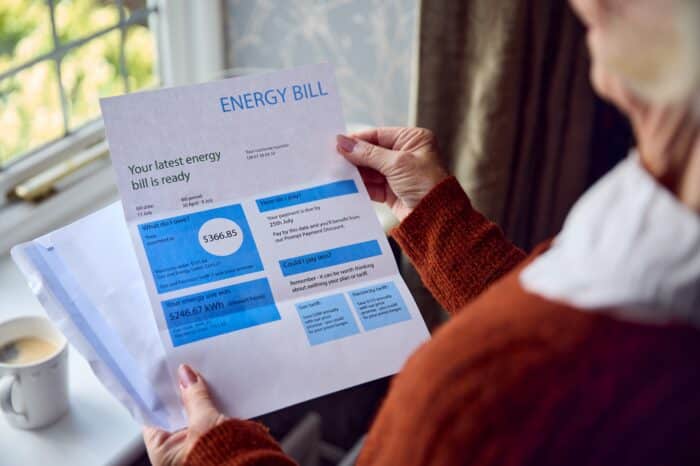
In 2023, 13.7% of homes in the UK were in fuel poverty, compared to 3.18% in 2022, according to the annual report by the Committee on Fuel Poverty.
The levels are measured based on a mix of household income, energy requirements and prices, known as the Low Income Low Energy Efficiency (LILEE) metric.
If you spend more than 10% of your income after household bills on energy, then you’ll be considered in fuel poverty.
Of those who met that threshold, 900,000 households had one child or more living there.
It is an issue that affects ethnic minority communities in lower-income neighbourhoods more, too.

Wellness and wellbeing holidays: Travel insurance is essential for your peace of mind
Out of the pandemic lockdowns, there’s a greater emphasis on wellbeing and wellness, with
Sponsored by Post Office
Those families who live in houses over 100 years old have higher rates of fuel poverty, leading to the committee calling for “urgent” research to determine how the inequality has occurred.
Private renters at most risk
Another group that was most at risk of paying too high a proportion of wages on their gas and electric was private renters.
This is down to landlords only needing to meet the Energy Performance Certificate (EPC) band E to rent out their property. A more efficient energy level of band F or G would decrease bills for tenants, but only homes with a band C rating would take renters out of fuel poverty.
Almost half (46%) of privately rented homes under bands B and C are in fuel poverty, which signifies 1.1 million of the 2.4 million tenants.
The report comes in a month in which the energy price cap was confirmed to rise by 10% for the three months between October and December and the Winter Fuel Payments for around 10 million pensioners were pulled by the Government.
The price cap increase means the daily standing charge this winter will go up by around 1p to 60.99p, based on the average usage in the UK.
Meanwhile, those over the state pension age will no longer automatically get the tax-free £200 or £300 cash boost unless they are on benefits, which include Pension Credit and Income Support.
The Government has since urged pensioners to check their Pension Credit eligibility to ensure everyone who can qualify for support claims their payment.
To combat the number of households struggling to pay their energy bills, the committee called for the Government to revamp its Fuel Poverty Strategy, which was created in 2001.
Part of this mooted update would see every home in the UK with a prepayment meter installed to make sure they could monitor their energy use and could even allow for emergency topping-up in winter months if needed.
There should also be a “national mission” to tackle the issue of cold homes, the committee urged, as energy bills continue to skyrocket for those trying to afford the amount it takes to heat up a cold home.
The report concluded that if the Government does not make any significant changes to targeting low-income homes and those who most urgently need help, the same levels of fuel poverty will continue next year.
‘I don’t think the Government anticipated this’
Caroline Flint, the Committee of Fuel Poverty’s chair, noted there has been a “stalling of progress”, given the number of people falling into fuel poverty.
Flint said: “I don’t think any Government anticipated this. Perhaps the stable energy prices for most of the 2010s created an optimism that fuel poverty would continue to fall for years to come. That optimism was misplaced.
“Last year, the committee hoped that with the pandemic behind us, energy-efficiency programmes would step up and progress would continue – even if the Government’s milestones were at risk of being missed. Now, it seems the pandemic – when so much stopped – obscured the lack of progress being made.”
While the same number of UK households are expected to be in a similarly difficult position in 2030, Flint insisted that “this report is not defeatist” and that “fuel poverty can be beaten.”
Flint added: “But for too many low-income households, the unaffordability of bills, especially in the coldest months, is all too real. We foresee that targeted financial support, possibly including the use of social tariffs, for vulnerable and low-income households may be needed for some years to come.
“This report argues that the Fuel Poverty Strategy requires a reset, a refresh and a new focus, to continue to bear down on a problem [that] too many low-income households endure year-on-year. The committee hopes to see a renewed drive to improve the fabric of our coldest homes – a fabric-first approach.”




